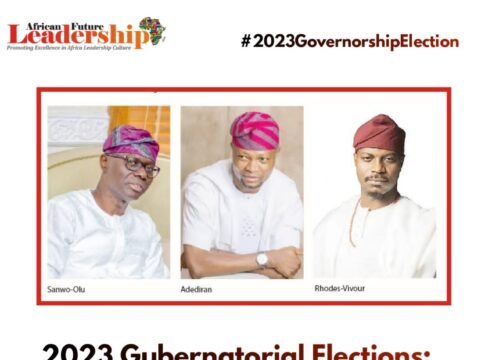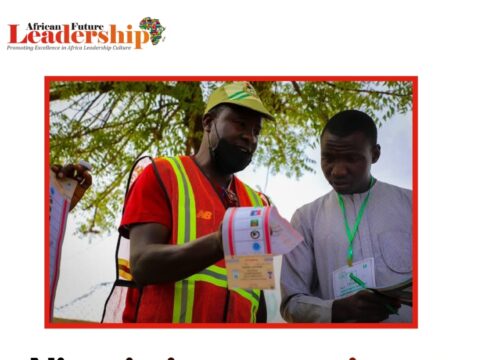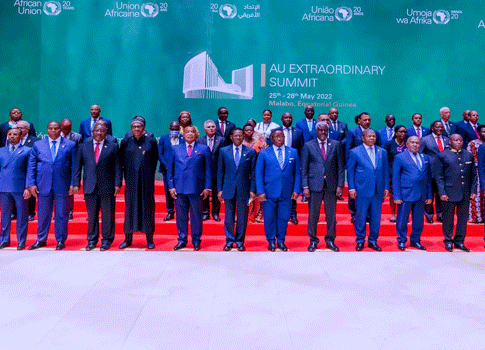The gubernatorial and state houses of assembly elections were concluded today March 18, 2023 amidst hostilities, electoral malpractice and manipulation. This is the last phase of elections in the 2023 cycle, the first being the presidential and the National Assembly polls held on February 25. In the first round of elections, the All Progressives Congress (APC) took center stage as the party won most of the contested seats, including that of the president.
Aside clinching the presidential position, APC won 162 House of Representatives seats and 57 senatorial seats. The People’s Democratic Party (PDP) won 102 House of Representatives seats and 29 senatorial seats. The Labor Party (LP) got 34 House of Representatives seats and six senatorial seats. The remaining seats in the National Assembly were shared by the New Nigerian People’s Party (NNPP), the Social Democratic Party (SDP), the All Progressives Grand Alliance (APGA), the African Democratic Congress (ADC), and the Young Progressive Party (YPP). While the APC aims to increase its dominance in today’s elections, PDP will try to reclaim its lost glory, and LP, will push to make a statement in the polls. Twenty-eight states are at the polls to either find new governors or re-elect their incumbent governors.
The emergence of the LP and the NNPP threatens APC and PDP’s quest to dominate governorship polls. The parties of the governors of Lagos, Oyo, Yobe, Nasarawa, and Borno states all lost the presidential election. This, thus, puts their elections on the hanger as they make efforts to claim victory today. Out of the 28 states where governorship elections are holding, 11 are witnessing incumbent governors seeking re-election. These are Oyo, Lagos, Kwara, Ogun, Zamfara, Gombe, Borno, Nasarawa, Yobe, Bauchi and Adamawa.
READ MORE: Zone Senate President to North Central, former minister tells APC
There were fears that there may be violence in some of the states, particularly Lagos, Oyo, Ogun, Kwara, Kano, Enugu, Kogi and Rivers among others. Basically, the concerns and tensions revolve not only around the logistics problems that greeted the February 25 Presidential and National Assembly polls but more importantly, on the sincerity or otherwise of the Independent National Electoral Commission, INEC, officials to let the people’s votes to count.
Despite some improvements over previous elections, INEC’s latest outing on February 25 may have proven that after 24 years of trying, officials of the Commission still cannot organize seamless national elections devoid of hitches and allegations of manipulation by politicians some of which are even aided by INEC officials.
The hopes of some Nigerians and lovers of democracy around the world for credible, hitch-free 2023 presidential election in Nigeria were dashed when the infractions that have persistently marred the country’s election circle resurfaced, even more pronounced in many areas than before.
With some political actors adopting the win by hook or crook attitude, many Nigerians, who spoke with Saturday Vanguard said the onus is on INEC and other critical state institutions like the security agencies to ensure the governorship and State Houses of Assembly polls are truly free, fair and credible.
The Labour Party, last week said its confidence in INEC to conduct credible polls had been eroded and the commission could no longer be trusted because it allegedly failed to transmit election results from polling units to its viewing portal real-time as it promised among others.
The use of technology was meant to check rigging. But following the failure of INEC in the Presidential election where snatching of ballot boxes, mutilation of results and other manipulations were facilitated by the Commission’s failure to transmit results real-time to the result viewing portal, election riggers now have hope that they can continue with their acts.
Top politicians including governors, reports say, had mapped plans to rig today’s election. Allegations and counter allegation of those planning to use security officials, fake policemen and INEC officials to falsify results are rife.
“If INEC were decisive, if they didn’t give room for the nonsense that happened during the February 25 polls people would not have been this encouraged to rely on rigging,’ one political activist said in Rivers.
No governorship contest in eight states, FCT
Apart from the FCT, the governorship election did not hold in eight states – Osun, Edo, Ekiti, Ondo, Kogi, Anambra, Imo and Bayelsa because their gubernatorial polls had been staggered since 2007, but assembly seats were contested in all the states. Being the polls that will determine elected leaders who are going to be closer to the grassroots than the President, Senators and House of Representatives members till 2027, there is really so much at stake.
The rigging claims that rang out across the country in the aftermath of the February 25 elections have affected the public’s perception of the electoral process in an unprecedented manner, generating excruciating anxiety that today’s polls might be a fresh tragic farce.
Some stakeholders cautioned that aside the dangerous trend of distrust among the different faiths and ethnic nationalities in recent times, if there is anything that fertilizes voter apathy and poses threat to the continuous existence of democratic governance in Nigeria, the perceived shortcomings of INEC are of major concern.
The INEC postponed the gubernatorial poll by a week, saying it needed to reconfigure electronic voting machines that are at the center of the dispute over the presidential vote won by Bola Tinubu of the ruling All Progressives Congress (APC). The race that has generated the most interest is in Lagos, Tinubu’s home state and Nigeria’s commercial hub. Obi, whose support came from young and urban voters, beat Tinubu in Lagos last month. That has buoyed his Labour Party, which is aiming to dethrone APC from running the state.
The ruling APC’s incumbent Babajide Sanwo-Olu, who has been in the Lagos state government for the past two decades, faces a strong challenge from Labour Party’s Gbadebo Rhodes-Vivour, an architecture and political activist. The two candidates, as well as Tinubu, voted separately in Lagos. Gbadebo Rhodes-Vivour alleged voter intimidation on Saturday and said the INEC moved some polling units without warning. Sanwo-Olu said any cases of violence should be investigated.
Nigerians will also be watching the race in northeastern Adamawa, a conservative and largely Muslim state, which could produce the country’s first elected female governor. Governors wield enormous influence in Africa’s most populous nation of more than 200 million and their support often decides who becomes president. Some governors preside over states whose annual budgets are bigger than those of some small African countries.
Gender disaggregate of contestants
Following Dataphyte election analysis, most contestants vying for the post of the governor are male. Data show that out of the 415 contestants in 28 states, only 25 are female. Of the major parties, only APC has a female governorship candidate in the person of Dahiru Ahmed Aishatu, vying for the post of governor in Adamawa State. The other candidates are contesting under the platform of other parties. Smaller parties such as ADP, APM, and SDP have three female governorship contestants, while AA, APP, NRM, and ZPL have two each.
The other parties have one contestant each, except AAC, NNPP, and PDP, who have no female governorship contestant. However, there are 102 female deputizing male contestants across the states. All the parties have at least two females who are deputy governorship candidates/running mates in various states. The highest number of females contesting deputy governors is in ADP, with 10. Parties such as PDP, LP, and six others have six females contesting deputy governorship positions. The ADC has eight, while AA has seven.
Low voter turnout dots governorship elections across states
Low voter turnout has been witnessed across Nigeria as 28 states conduct their 2023 governorship and state house of assembly elections today. In Bauchi State, a report showed that as at past 10 am, only six voters had cast their votes at Kofar Maigari Usamn 024 polling unit, and no other voter was on the queue. The report is the same in Lagos State, which has over 7 million registered voters. The Guardian reports that in some parts of the state, particularly FESTAC, no voter was seen at some polling units as at 8.40 a.m. Meanwhile, polls opened at 8:30am.
READ MORE: Nigeria tops list of countries withholding airline funds, IATA says
In the South-East, in Abia State ‘Amasator Ward 3 polling unit 92, reports also showed that few voters turned out to exercise their civic rights. According to a report, election materials arrived at the polling unit at about 8 am but voting was yet to start because no voter had turned out to vote.
In Rivers State, it was the same report. In Obio-Akpor, low voter turnout was reported. The electorate said they were unhappy with the outcome of the February 25 election, hence the decision to stay away.
At Ward 14 at Onitsha North Local Government Area of Anambra State, there were few voters as at 10am. Many said they stayed away because of loss of confidence in INEC.
In Imo state, a hotbed of separatist violence, security forces rescued 19 electoral officials who had been abducted by thugs, but election materials were lost, the Independent National Electoral Commission (INEC) said. The observers criticized the INEC for poor planning and voting delays but did not allege fraud.
Polls began closing from 1330 GMT and counting immediately followed, but time was extended where voting started late. Final results are expected by Monday. According to report by Reuters, Nigeria’s election officials counted ballots after polls closed on Saturday in a delayed vote to pick new state governors, amid reports of scattered violence and voter intimidation, including in Lagos, where a tight race was expected.
Several reasons have been cited for the poor voter turnout being experienced. A policy analyst, Ayantola Alayande, highlighted a number of reasons for the low voter turnout in the ongoing election. He pointed out that the postponement of the election by a week dampened the spirits of the electorate. “It would have been a different case if the elections followed the presidential elections straight up,” he said.
He also stated that INEC’s poor performance had altered people’s trust in the electoral system, noting that with a poor perception of INEC’s credibility citizens now doubted that their votes would count. He further noted that while the turnout was worrisome, the response in governorship elections had always been this way – low — which could be an issue of perception and buttressed that more focus was paid to presidential elections by the electorate.
“A much smaller proportion of those who had come out to vote in the presidential polls often show up for the gubernatorial. Perhaps, this reflects the general understanding of public accountability in Nigeria — where there is a heavy focus on what goes on at the national level, more than the closer state-level affairs”, Ayantola submitted.
In addition to these, he pointed out the issue of voter intimidation and violence reported in the presidential elections and in the lead up to today’s elections, including threats to the lives of certain groups of the electorate, might have resulted in low turnout of voters. Enough is Enough (EiE), a civil society organisation, highlighted the issue of voter intimidation as one of the reasons for the poor voter turnout in the gubernatorial election.
As we eagerly await the final results of the elections on Monday, it is hoped that the wish of voters who are desirous of a change in governance will prevail.




